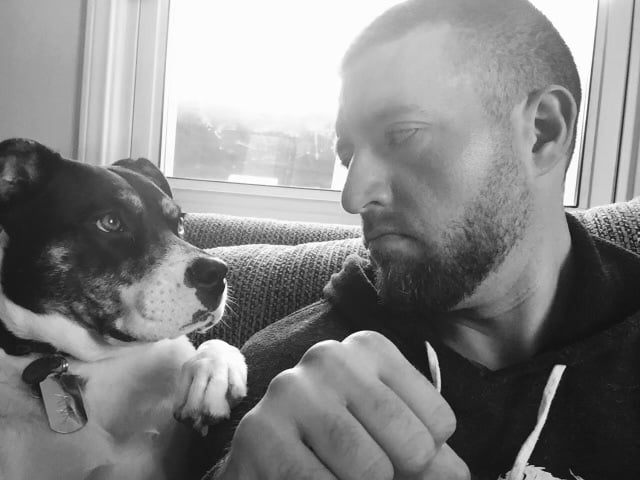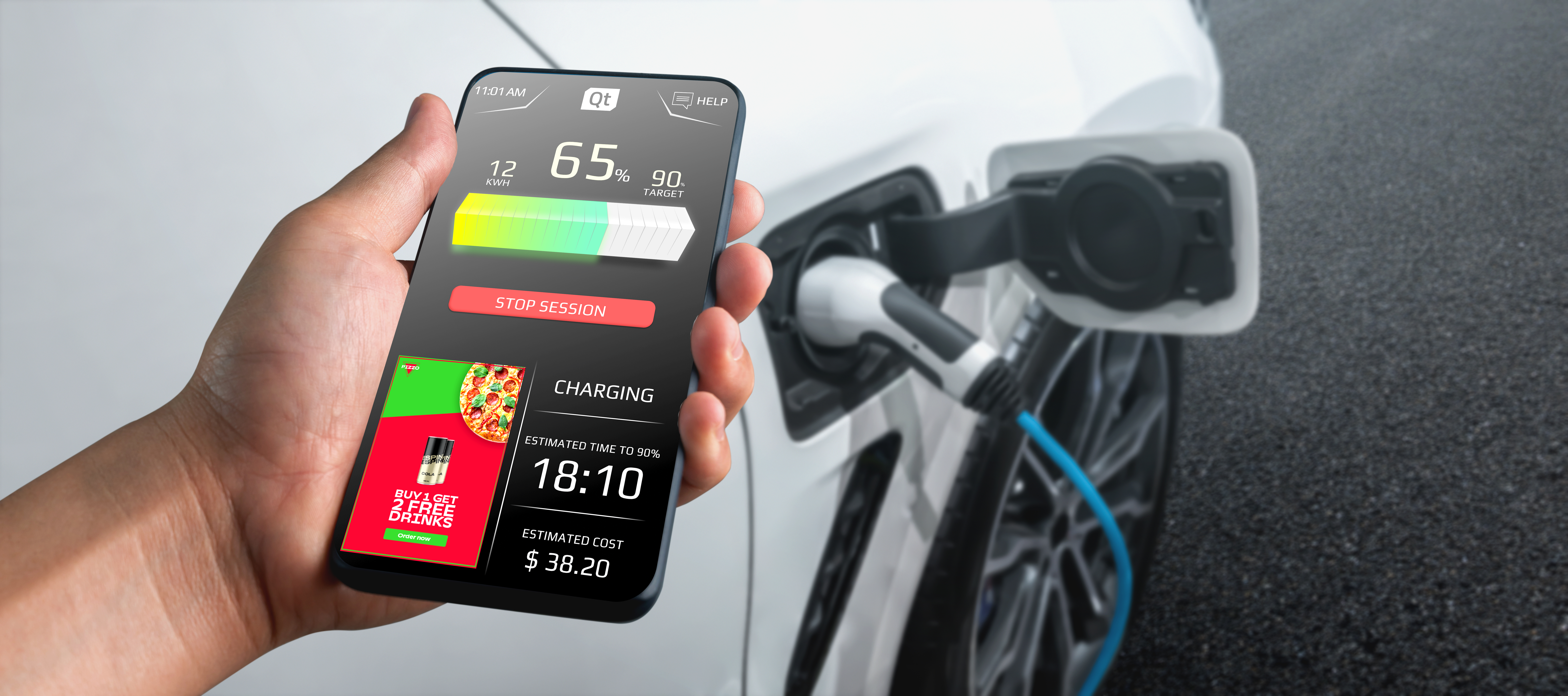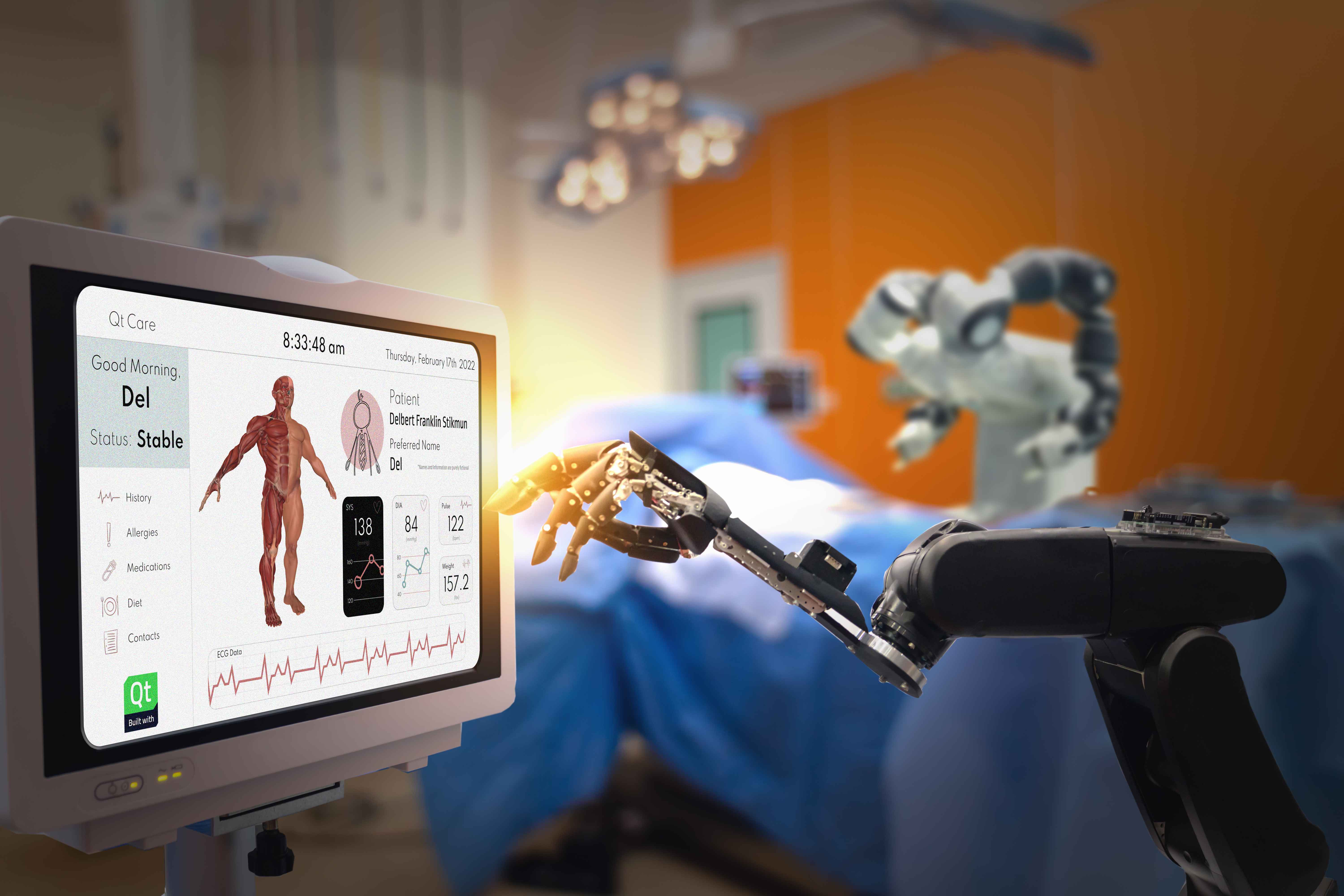Qt as a Career – The Versatility of Technical Artistry
January 09, 2023 by Hanna Humaljoki | Comments
In this series, we'll be bringing you a variety of career stories from people working with Qt.
Our first interviewee is Shawn Dorsey, Senior Technical Artist, at Qt Group.

Hi Shawn! Tell us a bit about yourself.
Hi! My position is Senior Technical Artist at Qt Group. I work in Sales, helping our customers in North America understand how Qt can continue to help their business.
A major part of my role is with our Qt Design Studio product creating 2D/3D interactive user interfaces and demonstrating the tool to our customers.
Prior to Qt, I had design roles in various software companies which specialized in high-end CGI, VR, AR, and WebGL technology.
In software development, Technical Artist is a blend of UX design, software expertise, and product development; the role falls between the UI designer and the software developer.
Could you share a bit more on the role of a Technical Artist? What does a TA typically do during the software development process?
Technical Artists have their roots in the gaming industry. Initially, they were known for the creation of beautiful 2D and 3D designs coupled with different types of coding skills. Since then, the role has evolved into a multifaceted discipline working within software companies’ R&D.
In software development, Technical Artist is a blend of UX design, software expertise, and product development; the role falls between the UI designer and the software developer. TAs use Qt Design Studio, which is a tool to create functioning user interfaces – bringing the static UI design to life on target hardware.
My role as Senior Technical Artist in Sales at Qt Group also contains more outwards-facing duties: advising client-partners concerning their design workflows and technical assistance with the implementation of Qt Design Studio.

What inspired you to pursue this career?
I’ve always had an interest in design and technology, so the software industry was always intriguing to me. As a designer, the result you deliver is typically not your personal “final” version; we’re always thinking of how to improve and enhance. With new technology emerging daily, software capabilities expand and offer new tools. This is what truly inspired me to pursue this career because you not only get to produce something beautiful but also contribute to the evolution of the software industry.
As a Technical Artist, it’s good to have an understanding of both, design and development, so I would recommend being versatile in your studies if this is something that interests you.
What did you study at school, and how did it prepare you for your career?
The “back in my day” story is that universities simply did not have specializations in subjects such as game design or CGI, so I went the Engineering / CAD Design route.
After a few years in the Engineering Design industry, I still had the desire to learn how movies were made, and schools were beginning to emerge in those specialized fields. I made a decision to go back to school and get a degree in 3D modeling, animation, and visual effects. The dual degrees allowed me to understand both sides of the industry with technical and design skills, and that’s how my design career really kicked off.
Nowadays, you have plenty of options on what to study based on your interests: for example, Digital Animation, Visual Effects, Industrial Design, Game Design, and Computer Science. As a Technical Artist, it’s good to have an understanding of both, design and development, so I would recommend being versatile in your studies if this is something that interests you.
Overall, working in software development nowadays is very collaborative, and you need to have good people skills.
What would a typical week consist of?
My typical week consists of meeting our customers, ideally their design teams. In those meetings, I’ll provide an overview of Design Studio, then a live demonstration that resembles what they’re most interested in and any new features that have been released.
Aside from that, I’ll work on demos for upcoming meetings or shows, as well as provide feedback to our R&D department based on my own use or the customers.
So actually, much of my work is communication with different people – not only technical. Of course, the work as a Technical Artist within Sales is a bit different than in our customer companies, but overall, working in software development nowadays is very collaborative, and you need to have good people skills.

What do you love most about your job?
I’ve never been great with just doing one thing over and over, so having that constantly evolving schedule of tasks is a major plus.
I also really love being part of building something great, and the development of Design Studio over the past 3+ years has been quite phenomenal! As a Technical Artist, you can see directly how the products evolve over time based on customer feedback, which I find really motivating.
Which skills or qualities would you say are of importance in order to succeed in your field?
Aside from the 2D & 3D skills in which Designers/Technical Artists should have a high level of skill at, a major quality is an ability to see the big picture and understand the most efficient way to get there by starting with nothing.
Additionally, not being afraid to fail by showing consistent progress and dedication.
Get comfortable being uncomfortable!
What advice would you give to someone interested in pursuing a similar career?
I have always been a fan of the phrase “get comfortable being uncomfortable”. The software industry is constantly changing, so no matter how experienced you are, you often come across unfamiliar things – you need to be comfortable with not knowing everything and be able to push through trying new methods.
Do you want to learn Qt Design Studio?
👉 See the courses at qt.io/learn
Do you want to understand more about the role of the Technical Artist?
👉 See the blog post "Technical Artist - Job Description, Roles, and Responsibilities for Embedded Device Development"
👉 Listen to Electronic Specifier’s podcast “Virtual Reality in the Automotive Sector” where Shawn was interviewed
Would you like to work with us?
👉 See our open positions
Blog Topics:
Comments
Subscribe to our newsletter
Subscribe Newsletter
Try Qt 6.10 Now!
Download the latest release here: www.qt.io/download.
Qt 6.10 is now available, with new features and improvements for application developers and device creators.
We're Hiring
Check out all our open positions here and follow us on Instagram to see what it's like to be #QtPeople.


